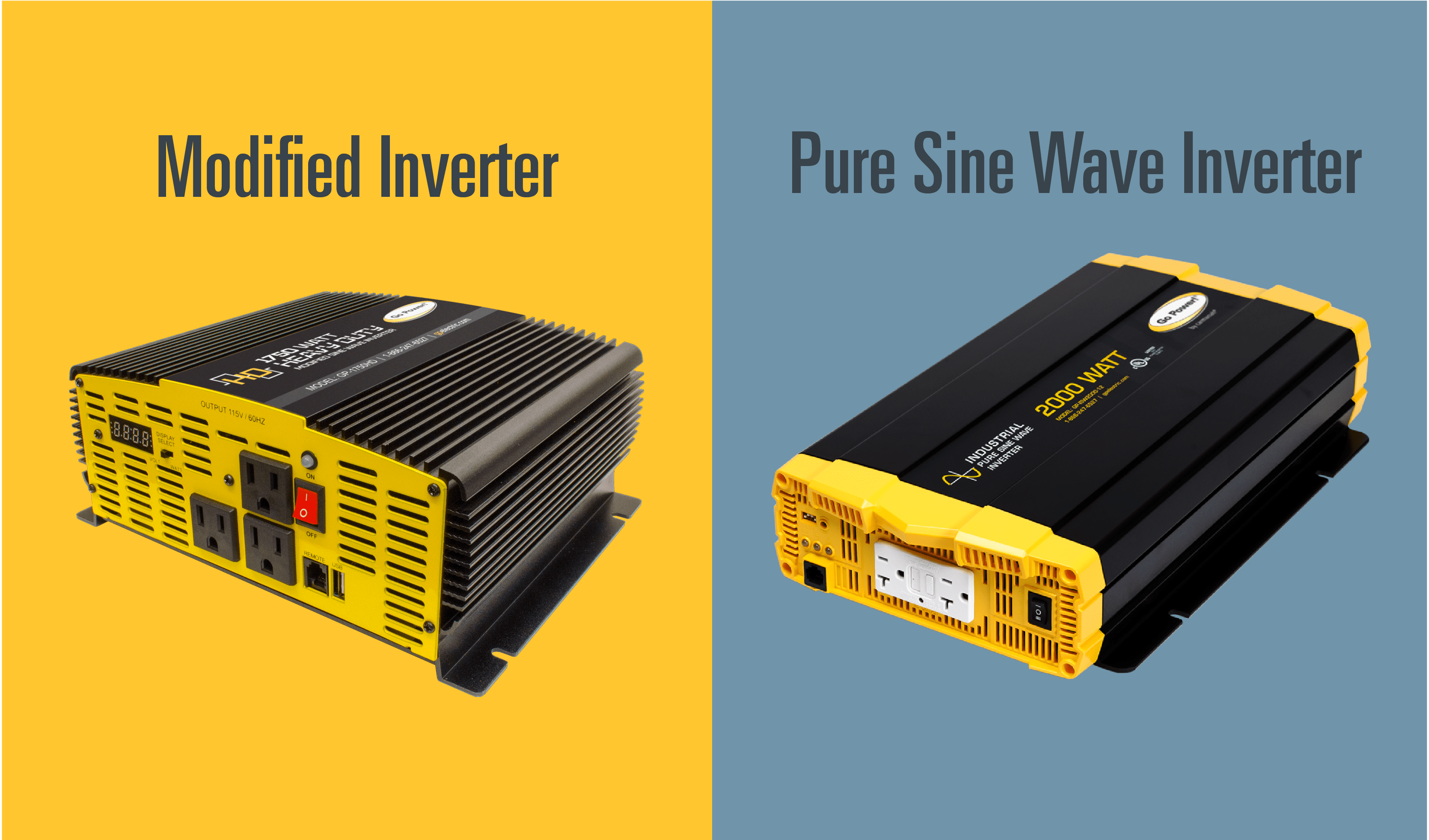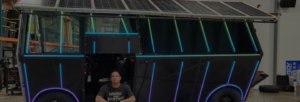Off-Grid Power – Air Conditioners Solar power and lithium battery technology have revolutionized the way...
Read MoreRV Solar 101: Power Inverters (Part 5)
While your RV batteries generally provide 12 volt DC power, many of the appliances you run in your RV require 120 volts AC (like in your home). Making this conversion is the primary role of your RV power inverter.
There are several things to consider when choosing your RV power inverter. First, while most older inverters use ‘modified sine wave’ technology (to recreate the AC power profile in your home), many appliances and sensitive electronics run better on the power produced by newer, ‘pure sine’ inverters. While more expensive, pure sine inverters provide more assurance that all your current and future devices will run optimally.
We recommend choosing an inverter from a company with a proven track record and reliable customer support. Your inverter should have a full range of safety certifications (such as CSA and UL) to ensure safe operation within your RV.
More elaborate converters also give you the capability to charge your batteries when you’re plugged into shore power or running a generator. Some even allow you to ‘pass through’ AC current directly to your appliances when you’re plugged into shore power, or to draw shore power and battery power at the same time.
HOW SOLAR WORKS – QUICK LINKS
LATEST NEWS
Watch product troubleshooting videos, read the latest in company updates, and stay up-to-date on trade-shows and events.
Creating the Ultimate Solar-Powered Car
Few people have a more diversified portfolio when it comes to custom car builds than...
Read MoreGo Power! Wins Gold in
Go Power! Wins Gold for Favorite RV Solar Product in the 2024 Wildsam Reader’s Choice...
Read More
STAY UP TO DATE
Get news, product specials, and event invites directly to your inbox.








